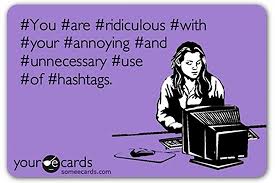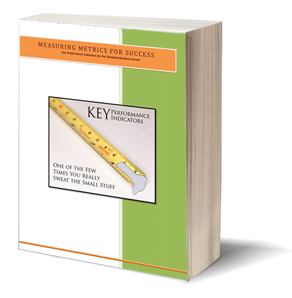Facebook started rolling out hashtags last week and will continue to roll it out for more users in the coming weeks. Many users were already used hashtags but they were not clickable (searchable) before.
So what are hashtags? A hashtag is a word or acronym used within a post, designed to signify the topic of that post – in other words, hashtags are designed to organize content related to a topic and make it easier for users to find that content and connect. Twitter user Chris Messina created the hashtag back in 2007. Since then, the hashtag has been integrated into other platforms, including Flickr, Pinterest, Tumblr, Google+ and Instagram.
A few things about Facebook’s hashtags
You still can’t search for posts in Facebook Graph Search, you can search for hashtags.
Users will also be able to create posts directly from a hashtag feed and search results.
Even if hashtags aren’t clickable for you yet, you should start using them because other users are able to click them already.
Right now you aren’t able to see what are popular hashtags on Facebook. Even typing words into the search bar beginning with # doesn’t result in any suggestions. Facebook does plan to add “trending topics” in the coming weeks.
Many people are worried that hashtags will clutter things up, but I am excited about the opportunity to create more visibility through the tags.
Of course, there will likely be spamming and hijacking of tags, however since they are already being used so much on other platforms, I am not too worried about this.
Using Hashtags in Your Marketing
Now is the time to start thinking about how you are going to use Hashtags in your marketing strategy. You should start using (strategic) hashtags in your public Facebook posts (your personal profile and Fan/Business page).
Hashtags aren’t clickable on mobile yet but they do work on the desktop version if you posted them on mobile. So be sure to include them even if you are posting from mobile.
To get the most out of hashtags, think about your industry and target market, look at trending hashtags in your industry, look at tags you use on your other social media platforms and create a strategy for using them. You want to create new hashtags and gain exposure for them and you can also join existing conversions by using current/popular tags.
Effective Hashtags
Every hashtag on Facebook has its own unique URL with a status update box at the top. You can drive traffic to that URL from other sites to engage users and create even more conversation.
You can search for hashtags by typing into the main search box on top of Facebook.
Simple hashtags are often most effective because the topic is clearly presented and users are more likely to search for something simple.
There is such thing as hashtags abuse and you want to avoid it. You know what I mean, those #people #who #hashtag #every #word #in #their #post. As with all social media, hashtags are effective when you focus on targeting the right people and connecting. It’s always quality over quantity. Sure you can tap into more traffic if you hashtag every word, but how much of that traffic is actually going to help you?
There are some great sites that allow you to monitor hashtags and determine the true meaning of them. Doing research before you join a conversation is a good idea. The best sites are:
- www.whatthetrend.com
- http://twubs.com/
- http://hashtags.org
Remember Facebook Hashtags Are Public
Anyone searching for that tag will be able to see your content. Use capital letters to make it easier to read the tags. Example: #SmallBiz is easier to read than #smallbiz. When tags aren’t easy to read, confusion ensues. An unfortunate example was the trending tag #nowthatcherisdead. Many fans that the tag was announcing that Cher was dead, they read it as #NowThatCherIsDead but it was really an announcement of Margaret Thatcher’s death, and should have read #NowThatcherIsDead. See how capitalization is important to avoid confusion?
Avoid using long hashtags. It’s harder to gain exposure and create a conversation around longer hashtags. For example: #SmallBusinessInformation is going to be harder to get going than #SmallBiz or even #SmallBizInfo.
Conclusion
Be careful with abbreviations. #FML is a common tag used amongst people on social media sites and it means F@#* My Life. Let’s say your company was Florida Match Light (just made that up, not sure if it’s a real company or not), you wouldn’t want to use #FML and join that conversation. So again it comes back to doing research and planning before you jump in and start using a tag.
If you aren’t used to using hashtags it may be a little confusing at first, but it’s worth the effort, so take some time to read up on tags and do some planning.








































15 Responses
I have just encountered hashtags lately and I guess a lot of Facebook users are also into it.
Yes, they are definitely very popular. I see a big difference in the exposure and engagement when strategic hashtags are used.
Facebook and hashtags, I doubt that can work out, at least the same as twitter. In twitter, you have person to person most possible 140 characters. In twitter, hashtag somehow forms a group of people together, with the tag.
However for Facebook, you can hashtag anything you share. Although at first sight this doesn’t seem so bad idea, and make you think, “Hey, what’s better than that? With just a hashtag, wouldn’t that very same people find even more?”, no, precisely not.
In twitter, what you expect to find are limited, but for Facebook there’s too many. A hashtag may also cover for stuff you don’t want to see within a hashtag. Not to ever mention the upcoming abuses.
There is always the risk of someone abusing a strategy or technique and all too often, it happens. But if we are diligent about what is in our control – which is how we use the tags – then I think it helps and increases exposure. I am excited about it and continue to explore new ways to benefit from it.
facebook hashtags only for searching not for a link,am i right?
Hashtags are designed to create a link that leads to all the other content that is relevant to that tag. It is a way of organizing information by subject or specific phrase to make it easier for people to participate in conversions about certain topics.
Unlike Twitter where anyone can access anyone’s stream and all tweets are public, most Facebook users do everything they can to share their feeds and profiles with a select group of friends. Facebook hashtags transcend these walls, however. If people pick up and use your hashtag, it gives you access to a cross-section of Facebook that was previously inaccessible.
That is true. Thanks for taking the time to comment.
Several users have reported that hashtags aren’t linked yet, so it appears that this is a gradual rollout by Facebook.
Yes, FB is definitely rolling it out over time and it’s not working on mobile yet. Soon though!
This is a problem. If everyone is using hashtags without anyone following the feeds, it completely defeats the purpose of using a hashtag in the first place.
True, but most people that use them have a community that’s following their feeds…#HonoringWomenWed #SEOPros #LHM2013 are three that I’ve used and we’ve reached the goal & intent of that hash tag!
That is true and that’s why some strategy is needed. As Gab shared with us, most users have built a community and the community counts on following the content via the tags. While you are working on building your community, you can use some broader tags to get exposure and use various other marketing techniques to get people interested and active.
Hey Jennifer,
I still remember when I first started using twitter, especially hashtag thing. It was so difficult and confusing but after sometime it really looks cool and pretty useful, as you can target specific audience who are looking for information that you’re sharing. I’m also quite excited with the introduction of hashtags in Facebook.
Thanks for the comment. 🙂 Yes, it can be confusing for new users but it’s well worth taking the time to play and learn. Most social media involves more strategy than people realize and once you play around, sitting down to create a plan is very important. Otherwise it just remains a confusing concept that isn’t really doing much for you.